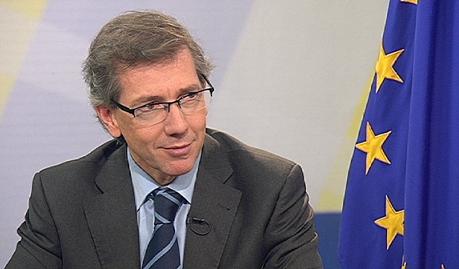In 2005, Finnish filmmaker Klaus Härö pulled off what some critics deemed as a surprise Golden Pyramid win for his heartbreaking wartime drama “Mother of Mine. I wouldn’t be surprised if Härö scored another best picture win this year for his fourth feature “Letters to Father Jacob, a pitch-perfect little drama about faith, forgiveness and grace.
Along with Abel Ferrara’s underseen “Mary (2005) and Carlos Reygadas’s “Silent Light (2007), “Father Jacob ranks among the most accomplished films in recent years that deal with both the nature of faith and the role of religion in modern life. Great performances, natural, sunlight-drenched cinematography and a stirring score elevates Jaana Makkonen’s simple story into a unique, transcending experience.
Feminist writer Kaarina Hazard plays Leila, a case-hardened murderer who receives a pardon 12 years before her life-sentence is complete. Unwillingly, she goes to work for a blind, elderly pastor named Jacob (Heikki Nousiainen), a man she believes is responsible for her pardon.
Residing in a small, dilapidated countryside parsonage, the kind-hearted Father Jacob employs Leila to assist him in realizing his long-cherished vocation: answering letters of those in need of his help and prayers.
Leila is largely indifferent to the work Jacob believes to be his true calling. She performs her required work mechanically, maintaining a barrier between herself and the pastor. Her repressed anger, nourished by years of suffering, has killed every grain of empathy inside her soul. Her stubbornness prevents her from divulging her secret; redemption is an unreachable object for her, so far-fetched she can’t even conceive of the possibility of reaching it.
For Jacob, answering letters is not merely a joyful occupation, it’s his raison d’être. He doesn’t have anyone to care for, no more services to perform. Apart from the local postman who brings him the letters, Jacob has no visitors. It’s not just age that has forced Jacob into the sidelines, it’s the fact that people have grown out of religion, a notion fortified when the letters stop coming.
Jacob gradually comes to suspect that answering those letters might not signify carrying out God’s work as he always believed. “Maybe it’s something that God has given me to hold on to.
Eventually, the roles of Jacob and Leila are reversed to uncover something akin to a divine plan, in a heartrending conclusion that evokes the best works of Graham Greene.
Cinematographer Tuomo Hutri lenses Härö’s quiet wide verdant vistas with remarkable attentiveness, using natural light to give the film an ethereal feel. With a short runtime of 75 minutes, Härö keeps a tight grip over his material, conceiving the weightier parts of the story with piercing gentleness.
The most remarkable feat of Härö’s treatment is its total lack of cynicism. For the most part of the past four decades, Christian priests of every division have been constantly depicted on screen as pedophiles, idealistic buffoons not in touch with reality or corrupt, power-hungry tyrants.
“Father Jacob is one of those rare films that treat their subject matter with respect and devotion. Härö’s luminous frames radiate with a child-like innocence and purity that seem to be out of place in this world.
Perhaps that’s why the ending of the film is so life-affirming: perhaps we’re not alone in this world after all, perhaps some tragedies do happen for a reason, perhaps there is meaning behind this large puzzle called life. I’m usually too cynical to believe so, but for those 75 minutes, I had no hint of doubt in me.

